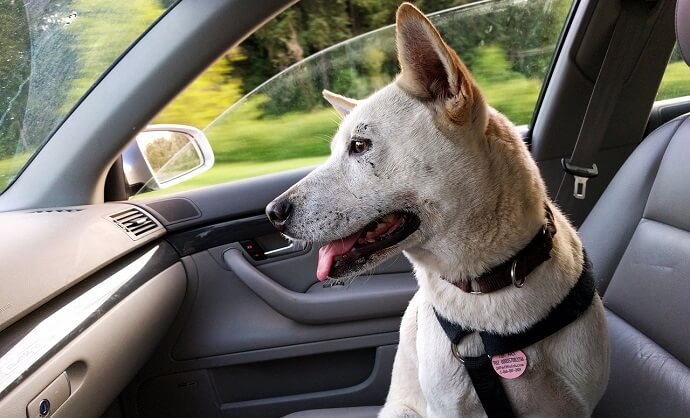Travelling with pets: dogs, cats and ferrets
EU rules make it easy to travel to another EU country (in this case the 27 EU countries + Norway ) with your dog, cat or ferret. These rules also cover travel to the EU from a country or territory outside the EU.
With a few exceptions, your pet can travel with you to another EU country or from a non-EU country to an EU country if it has:
- been micro-chipped or has a clearly readable tattoo if applied before 3 July 2011
- been vaccinated against rabies
- had treatment against the tapeworm Echinococcus multilocularis, where necessary (not required for dogs travelling directly between Finland, Ireland, Malta and Norway)
- a valid European pet passport, when travelling to another EU country or an EU animal health certificate, when travelling from a non-EU country .
The EU rules on travelling with pet animals apply to private journeys with pet animals which do not involve a change of ownership or sale.
Travel documents for your pet dog, cat or ferret
European pet passport
A European pet passport is a document, which follows an EU standard model and is essential for travel between EU countries. It contains a description and details of your pet, including its microchip or tattoo code as well as its rabies vaccination record and contact details of the owner and the vet who issued the passport. You can get a European pet passport for your dog, cat or ferret from any authorised vet (permitted by the relevant authorities to issue pet passports). A pet passport is valid for life as long as your pets rabies vaccination is in date.
If you are travelling to an EU country from Andorra, Switzerland, Faroe Islands, Gibraltar, Greenland, Iceland, Liechtenstein, Monaco, Norway, San Marino, Vatican City State, your pet can also enter the EU with a pet passport issued in one of these countries.
EU animal health certificate
An EU animal health certificate is another type of document, which contains specific information about your pet (identity, health, rabies vaccinations) and is based on an EU standard model.
If you are travelling from a non-EU country or territory, your pet must have an EU animal health certificate endorsed by an official State vet in the country of departure not more than 10 days before your pet arrives in the EU. The certificate is valid for travel between EU countries for 4 months from this date or until the anti-rabies vaccination expires, whichever lapses first.
In addition, you should also complete and attach a written declaration to your pets EU animal health certificate stating that its relocation is for non-commercial reasons. This declaration is also required if your pet is travelling under the responsibility of a person authorised by you. In this case, your pet must be reunited with you within 5 days of your relocation.
Pets travelling without their owner
As a rule, pets must travel with their owners; however, you may give written permission to another person to accompany your pet for you (this written declaration is described above). You must however be reunited your pet within 5 days of its relocation.
If your pet is travelling unaccompanied, it will have to comply with animal health rules which apply to the import or trade of dogs cats or ferrets into the EU.
Travelling with more than five pets
You can travel with up to five pets, but if you there are more than five pets (dogs, cats or ferrets) you must provide proof that:
- they are participating in a competition, exhibition or sporting event (by providing for example a registration document), and
- they are more than 6 months old.
If you are travelling with more than 5 pets (dog, cats, or ferrets) and you do not meet any of the exceptions mentioned above, your pets have to comply with animal health rules which apply to the commercial import of animals into the EU.



